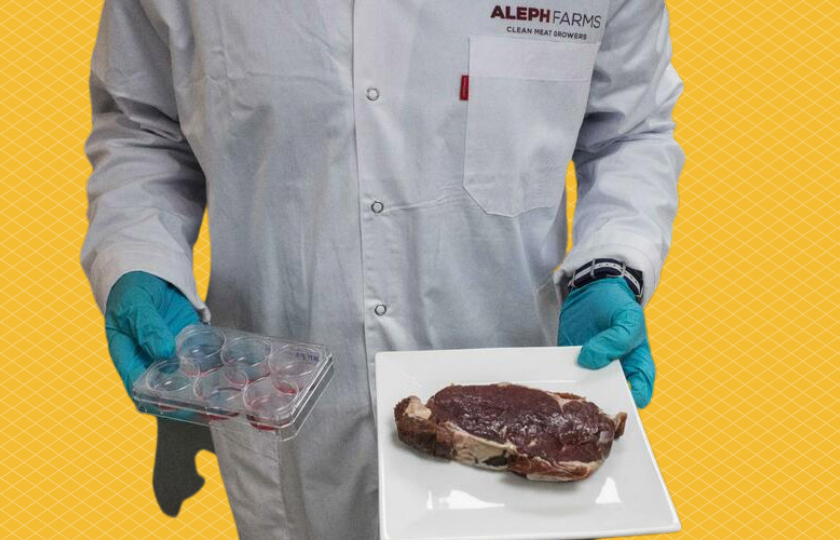Cultured meat startup Aleph Farms has teamed up with German biotech company Wacker to develop an open-source solution to end fetal bovine serum use in the development of lab-grown meat.
The partnership also seeks to provide an open supply chain solution to help the industry scale and significantly reduce production costs.
Lab-grown meat, cell-based meat, cultured meat – also called “clean meat” – has surged in popularity primarily because it’s more environmentally friendly than regular meat. It requires much less land, uses less water, and produces less pollution.
“The market for cultivated meat is advancing rapidly, and we want to contribute to making it an affordable reality for everyone,” said Susanne Leonhartsberger, president at Wacker Biosolutions.
Unfortunately, to produce cultured meat, fetal bovine serum (FBS) is extracted from animals to produce cultured meat – usually without any form of anaesthesia – as a growth medium.
Growth-medium proteins are essential components naturally found in animals and today represent the main cost drivers of cultivated meat production. They act as a nutrient-rich feed to help cells grow and mature into muscle, fat and collagen-producing cells and are imperative for supporting cellular activity.
According to the Israeli-based startup, these proteins, crucial to supporting cell growth, are not widely available and are one of the main reasons cell-based meat production is currently so expensive.
“What makes cultured meat so expensive is not the starter meat cells,” explains Didier Toubia, co-founder and CEO, Aleph Farms. “The most expensive inputs in the process are the non-animal proteins incorporated in the growth medium used to feed the cells.”
The agreement between the two companies is non-exclusive, meaning any cultivated meat company will obtain affordable proteins without using fetal bovine serum or animal-derived ingredients.
“Bringing down the cost and making suitable raw materials available at this key moment in the scale-up of production is imperative to taking cultivated meat mainstream and driving impact”, Toubia added.



